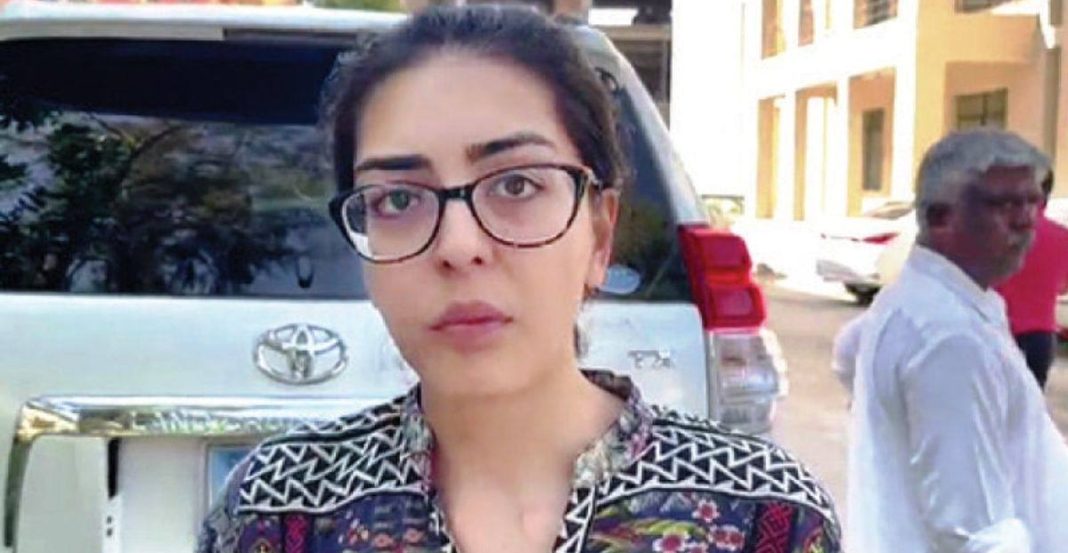The controversy surrounding Advocate Imaan Zainab Mazari-Hazir took a new turn when a reference was filed before the Islamabad Bar Council, accusing her of being “anti-state” and acting as an agent of banned outfits such as the Tehreek-e-Taliban Pakistan (TTP) and the Balochistan Liberation Army (BLA). The petition seeks the cancellation of her license under Section 41 of the Legal Practitioners and Bar Councils Act, 1973, on grounds that she incited hatred against state institutions, ran smear campaigns against functionaries, and had alleged links with proscribed organizations.
For Mazari, however, these allegations are not just about her politics. They have emerged directly after she filed a harassment complaint against the Chief Justice of the Islamabad High Court (IHC), Sardar Muhammad Sarfraz Dogar. What began as a professional woman lawyer’s stand against sexist and humiliating conduct in the courtroom has escalated into what many now view as a systemic backlash — one in which the state, the judiciary, and bar councils appear aligned against her.
Tensions Escalate in Courtroom Confrontation
On September 11, 2025, Mazari appeared before Chief Justice Dogar in a petition seeking removal of Dr. Mahrang Baloch’s name from the Exit Control List (ECL). The hearing turned into confrontation when Dogar reprimanded her, telling her to “keep your mouth shut and stay within the limits of respect,” and warning of contempt proceedings. His remarks, described as demeaning and sexist, were immediately condemned by lawyers’ groups and bar associations.
In response, Mazari demanded preservation of CCTV footage from Courtroom No. 1 between 9 a.m. and 11 a.m. that day, arguing that the incident should be documented as evidence of harassment.
Filing the Harassment Complaint
Invoking the Protection Against Harassment of Women at the Workplace Act 2010, Mazari lodged a formal complaint before the IHC harassment committee, while also submitting a reference to the Supreme Judicial Council (SJC) against Chief Justice Dogar for misconduct. Justice Saman Rafat Imtiaz initially took cognisance of the complaint and constituted an inquiry panel with two other judges. Yet, within hours, she was de-notified as the “competent authority” and replaced by Justice Inaam Ameen Minhas — a move Mazari described as arbitrary and mala fide, designed to protect the Chief Justice.
Her addendum alleged that registrar staff and other court officials had tried to block the filing of her complaint, only relenting after significant resistance.
Alleged Retaliation and Abuse of Power
Mazari contends that filing her harassment complaint triggered retaliatory actions. She says a new case was lodged against her through the National Cyber Crime Investigation Authority (NCCIA), with a prosecution team rushing to file a challan in a trial court. Media reports indicate she is likely to be summoned, though she has yet to receive official notice.
Read More: EU struggles under China’s rare-earth monoply amid production delays
She further claims that some of her pending cases were suddenly marked before Chief Justice Dogar. When her proxy counsel requested transfers due to conflict of interest, Dogar not only refused but reportedly discussed the harassment issue in the courtroom itself, raising further concerns of intimidation.
Parallel to these judicial developments, the Islamabad Bar Council is processing the reference against Mazari, which seeks suspension or cancellation of her license. For her supporters, the timing is telling: instead of protecting a woman lawyer who has invoked anti-harassment laws, institutions appear to be mobilizing against her, branding her anti-state.
Systemic Issues at Stake
While the public clash began with one judge’s alleged sexist conduct, the aftermath reveals broader institutional questions:
-
Administrative control over harassment laws: The removal of Justice Imtiaz from her role as competent authority after she initiated an inquiry undermines trust in the process.
-
Patriarchy and judicial culture: Dogar’s language — calling Mazari “child,” threatening contempt, and dragging her family into proceedings — reflects entrenched gender biases.
-
Transparency and obstruction: Attempts to block Mazari’s complaint, coupled with delays in granting access to CCTV, raise concerns about procedural fairness.
-
Retaliation through legal tools: The use of cybercrime charges and bar references against Mazari suggests institutions are punishing her for speaking out.
What Happens Next
The SJC must now decide whether to proceed with Mazari’s judicial misconduct complaint, while the Islamabad Bar Council will hear the reference demanding cancellation of her license. Lawyers’ associations across the country — from Lahore to Karachi — have condemned the treatment meted out to her, framing it as an issue of judicial accountability and gender justice.
For Mazari, this is no longer only about an abusive judge. It is about whether Pakistan’s legal system allows a woman to use the law to challenge judicial power — or whether the system itself mobilizes to crush her. The outcome will determine whether harassment laws and accountability mechanisms are meaningful protections, or whether they are easily neutralized when power is challenged.














